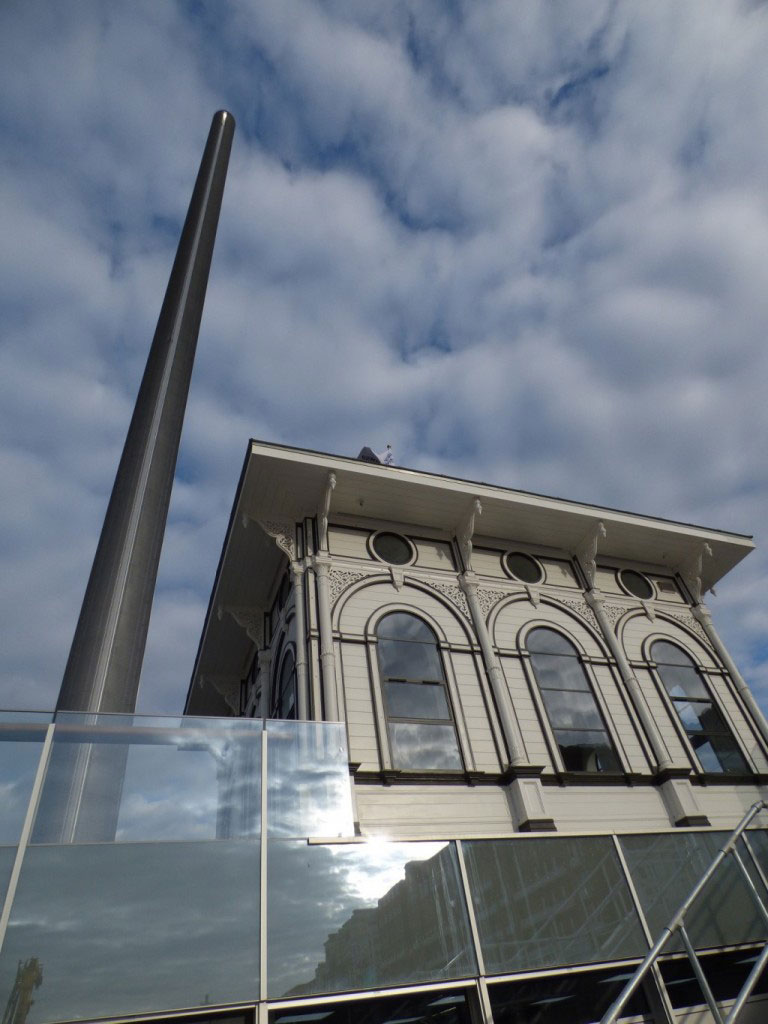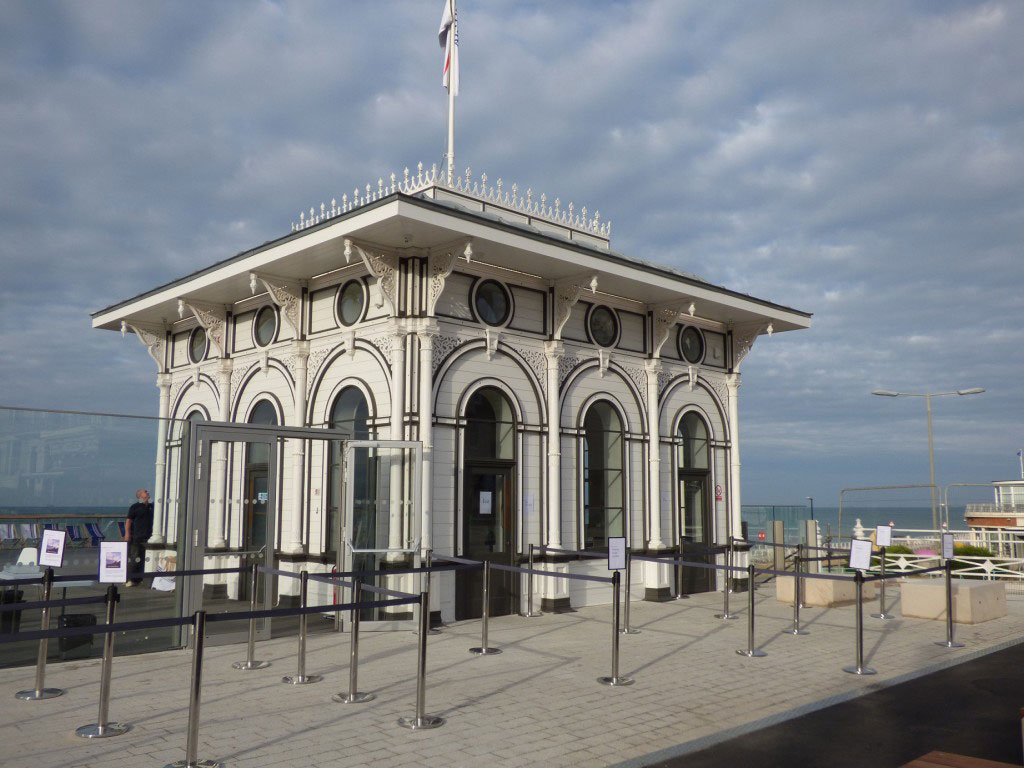– Recreation of Brighton’s Victorian West Pier tollbooths have been crafted using Accoya
– One of the tollbooths acts as a ticket office for the world’s first vertical cable car
– The new cable car, British Airways i360, launched this August
Accoya, the leading modified wood, has been used within the development of two carefully reconstructed Victorian tollbooths. The tollbooths are part of the launch of British Airways i360, the world’s first vertical cable car in the seaside town of Brighton.
Located by the entrance of Brighton’s abandoned West Pier, the 531ft high British Airways i360 offers views across Regency Brighton and the South Downs. The views stretch over 66 miles of coastline and on the clearest days visitors can see as far as the Isle of Wight.
The western tollbooth houses the British Airways i360 ticket office, with the eastern tollbooth now acting as the West Pier Tea Room. The structures were built to replicate the previous 1866 tollbooth designs.
Accoya was used to craft the doors and doorframes of both tollbooths, which act as a gateway for the thousands of visitors expected to journey to the British Airways i360.
The structures were built by specialist contractor InWood Developments which has employed Accoya window and door manufacturers Westgate Joinery to supply and install the Accoya doors and door frames for the new buildings. These have been painstakingly constructed over several months to ensure that each and every element of the buildings reflect the original structures.

David Pattenden, managing director of Westgate Joinery, said: “Our team are used to developing bespoke and high quality windows and doors each and every day, but this project was definitely one of a kind. We were honoured to be able to contribute to the redevelopment of these tollbooths which once formed the entrance to Brighton’s West Pier, one of Britain’s historic landmarks.
“Accoya was the obvious choice of material for the doors and frames of these stunning structures. As the most durable and stable wood around, we knew that the ticket office door would have absolutely no problems with sticking or warping when Accoya was used. The building overlooks the English Channel and faces some very difficult weather conditions, especially during the winter months.
“Accoya’s structure means that it won’t be affected by rain and heat like other woods. We can rely on Accoya to last a lifetime.”

Offering exceptional durability and stability, Accoya has proven popular with architects and joiners alike for the construction of windows and doors, especially where quality and aesthetics are important. Compared to competitor wood products, the use of Accoya reduces shrinkage and swelling by at least 75%, meaning doors and windows open effortlessly year-round.
Recent carbon footprint research shows that Accoya windows are carbon negative over their full life cycle, helping to support the Passive House standards that the architect strived to achieve.
Laura Keily, head of marketing at Accsys Technologies, said: “With a 50 year above ground guarantee, Accoya was an easy choice to make for the manufacturing team, giving them confidence that their doors will last with minimal maintenance. “I’m delighted that Accoya has been used to help secure the future of one of the UK’s most well-known attractions.”
